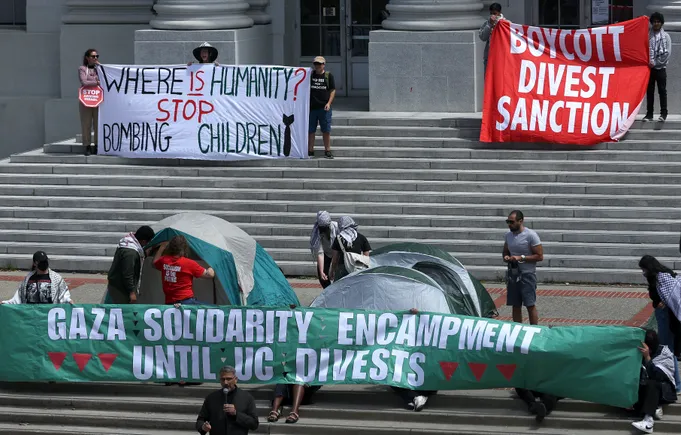Dive Brief:
- A pair of House lawmakers introduced a bill last week that would cut off federal student aid to colleges that participate in a commercial boycott against Israel. .
- The Protect Economic Freedom Act — introduced by Reps. Virginia Foxx, a Republican from North Carolina, and Josh Gottheimer, a Democrat from New Jersey — comes after months of heightened lawmaker scrutiny over how college leaders have responded to campus unrest in the wake of the Israel-Hamas war.
- The bill’s authors staunchly oppose activist efforts for colleges to divest from companies with business ties to Israel, a longheld goal of the boycott, divestment and sanctions movement. “If an institution is going to capitulate to the BDS movement, there will be consequences — starting with the Protect Economic Freedom Act,” Foxx said in a statement.
Dive Insight:
The proposal is unlikely to pass before a new Congress starts Jan. 3, when all bills will have to be reintroduced to be considered. But it signals the priorities of two lawmakers who won reelection in November.
Foxx, who chairs the House Committee on Education and the Workforce, has spearheaded efforts to investigate how colleges are responding to pro-Palestinian demonstrations and has frequently accused them of failing to protect Jewish students from antisemitism.
The Republican-led committee released a scathing 325-page report in October that accused 11 high-profile colleges of failing to shield Jewish students from antisemitism and of making “shocking concessions” to student protesters. The report cited the example of Northwestern University appointing professor Nour Kteily to negotiate with student activists who had set up an encampment, saying he “advised students on how to pressure trustees to advance divestment.”
Some Democrats have joined the chorus of lawmakers accusing colleges of not doing enough to protect Jewish students. They include Gottheimer, who has been a vocal critic of the boycott, divestment, and sanctions movement, or BDS, against Israel.
The BDS movement started in 2005 with the aim of putting economic pressure on the Israeli government to meet several demands, including ending the occupation of land captured during the 1967 Arab-Israeli war, giving Palestinian citizens of Israel “full equality,” and allowing Palestinians and their descendants to return to the properties they were displaced from when the state of Israel was created in 1948.
BDS supporters argue it is a nonviolent form of protest inspired by the South African anti-apartheid movement. However, some supporters of Israel view the BDS movement as antisemitic and say its end goal is to undermine Israel’s legitimacy.
Gottheimer echoed that view when announcing the bill.
“The goal of the antisemitic BDS movement is to annihilate the democratic State of Israel, America’s critical ally in the global fight against terror,” he said in a statement. “While students and faculty are free to speak their minds and disagree on policy issues, we cannot allow antisemitism to run rampant and risk the safety and security of Jewish students, staff, faculty, and guests on college campuses.”
The Israel-Hamas war has supercharged the BDS movement, with student protesters frequently calling on their colleges to divest from weapons manufacturers and companies with ties to Israel, as well as to boycott Israeli academic institutions.
In two referendum votes at Rutgers University, for instance, the student body called on the institution to divest from companies doing business with Israel and to end its academic partnership with Israel’s Tel Aviv University. Gottheimer objected to the university holding the vote, calling the student referendums antisemitic.
The lawmakers’ bill comes after two dozen attorneys general urged Brown University in August to reject a proposal for the institution to divest from companies with ties to Israel. They argued divestment would have “profound legal consequences,” as three-fourths of states have laws preventing them from doing business with entities that discriminate against Israel.
Brown’s highest governing body ultimately rejected the divestment proposal in October.
Some universities have attempted to assuage student protesters. For instance, San Francisco State University dropped investments in three weapons manufacturers following discussions with student activists.
The proposed bill would require colleges to certify each year that it is not engaging in a “nonexpressive commercial boycott of Israel.” According to the announcement, the bill is modeled after laws enforced by the U.S. Department of Commerce that “prohibit U.S. persons from participating in unsanctioned foreign boycotts.”

